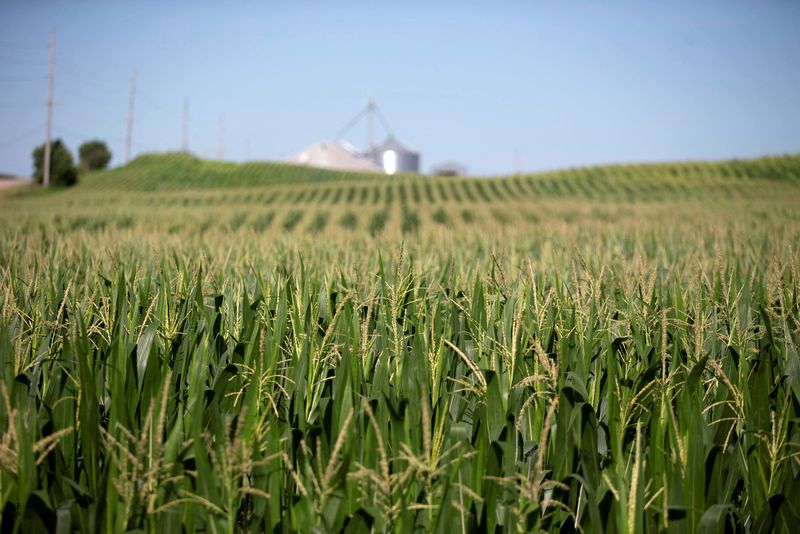By Leah Douglas, Christopher Walljasper and Karl Plume
CHICAGO (Reuters) - Farm groups are urging the U.S. Agriculture Department to allow farmers the ability to plant on acres set aside for conservation, to help fill the absence of Ukrainian corn, wheat and sunflower oil amid Russia's invasion of the country.
In a letter to U.S. Secretary of Agriculture Tom Vilsack on Wednesday, seven agriculture lobbying organizations representing U.S. farmers, feed producers, grain exporters, millers, bakers and oilseed processors asked the USDA to provide flexibility to farmers to plant crops on more than 4 million acres of "prime farmland" currently enrolled in the Farm Service Agency's Conservation Reserve Program (CRP) without penalty.
The program pays farmers to fallow land for a 10-year period.
"It remains unclear whether Ukrainian farmers will be able to safely plant crops this spring," the letter said. "Time is of the essence. The planting window in the United States has already opened."
If those acres are planted, at 2021's average corn yield, that could mean an additional 18.7 million tonnes of grain produced.
The letter, signed by the American Farm Bureau Federation, the National Grain and Feed Association and others, echoes a March 8 request by U.S. Senator John Boozman of Arkansas, as well as calls from agriculture economists.
"This is an emergency, wartime situation," said University of Illinois agricultural economist Scott Irwin. "It's very clear to me that the world needs acres of corn and wheat this spring, and where are we going to find them?"
Some farmers are skeptical about the approach. CRP acres are often set aside because they are difficult to farm, have poor soil, or are environmentally sensitive.
"In my area, everything that is farmable is farmed. We have very little CRP in my neck of the woods. It's only in places you don’t want to farm," said Kevin Scott, a corn and soybean farmer in southeastern South Dakota.
The war in Ukraine threatens around 7 million hectares (17.3 million acres), nearly half the nation's planned spring planting region, Agriculture Minister Roman Leshchenko said. Some farmers cannot access farms in conflict zones, while others struggle to find adequate fuel and fertilizer, and exporters are blocked from shipping grain by Russian forces.
The European Union has already eased restrictions on fallow land, offering financial incentives for farmers to plant additional acres.

The USDA-FSA said it had no immediate plan to relax CRP rules, while Vilsack, in a March 10 town hall, did not rule it out.
"I think it's a little premature to make that call, because we really don’t know precisely what's going to happen," said Vilsack.